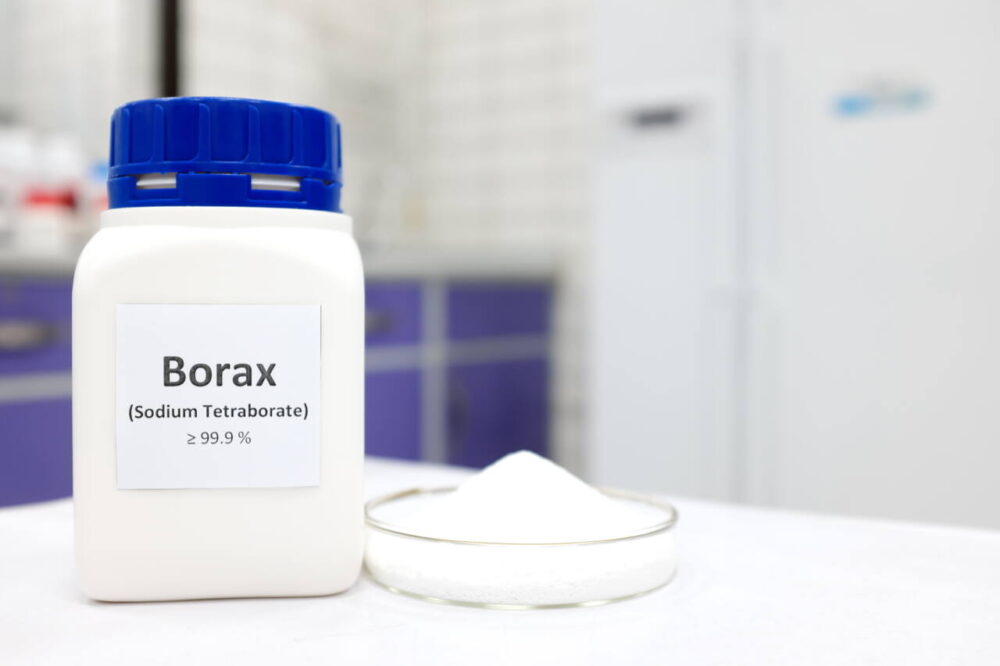The products and services mentioned below were selected independent of sales and advertising. However, Simplemost may receive a small commission from the purchase of any products or services through an affiliate link to the retailer's website.
“The Ants Go Marching” may be a catchy tune, but most people aren’t fans of actually watching the process take place inside their home. Ants can get into your food, build mounds and be a general nuisance. Some kinds can even cause harm to pets, people (fire ants, bullet ants, harvester ants and army ants) and property (carpenter ants).
Besides regular pest control services and traditional pesticides, there are some alternative ideas for how to get rid of ants around your home and yard. But first …
What Doesn’t Work to Get Rid of Ants?
The University of Minnesota Extension explains what will not help get rid of ants: flooding an ant nest with water or gasoline. Ants can often survive being in water, whether boiling or not, and gasoline is an environmental pollutant besides being dangerous to handle.
Nor will using spearmint gum, red pepper, orange peels, common household cinnamon, other herbs, lavender and other essential oils act as an ant deterrent. Most often, they only temporarily redirect ants as scent disruptors (ants don’t like strong smells).
However, there are some effective ideas for how to get rid of ants that you can try. Here are six methods you might not have considered before.
Start With Prevention

If you don’t want to be dealing with ants to begin with, take steps to keep them away. To begin with, find entry points into your house and caulk up areas where ants could be getting in. This may be difficult, since ants are so small and you may not know where they are entering unless you see their trail.
Be vigilant about letting any type of plant lean up against your house. Keep a space between hedges along your outer walls and don’t let tree branches touch your roof. These can act as bridges for ants to cross onto and into your house.
Check potted plants you bring into your house, too.
MORE: These 5 DIY All-Natural Pesticides Will Keep Bugs Out of Your House
Make extra efforts to keep your kitchen free of food residue, including cleaning counters and floors. You’ll also want to store food that’s not in your fridge or freezer in airtight storage containers or zipper bags.
Don’t forget about cleaning up after your pets’ food, too, as ants like theirs just as much as yours.
Create a Borax Trap

Borax, also known as sodium (tetra)borate, is a compound of the element boron. You have most likely heard of borax being used as a laundry additive. But some highly rated commercial ant baits actually contain borax.
You can make your own homemade borax ant killer that is just as effective by combining borax with water and sugar or another sugary substance like honey. The sugar bait draws the ants in, and the borax they take back to their colony acts as a poison.
Use Boric Acid
Boric acid is not the same as borax, though both are compounds of boron, and borax is derived from boric acid. Boric acid works similarly to borax when mixed with a sugar bait to attract and kill ants. Sometimes boric acid works even better than borax, as it is stronger. You might try both to see which seems to be more effective for factors such as the ant type or time of year you’re in.
Put Down Some Neem Oil

Full-strength neem oil is a natural insecticide from the neem tree, and it’s especially useful for people wanting to know how to get rid of sugar ants. It does this indirectly: Neem oil helps repel and kill insects like aphids and whiteflies, which leave behind sugary residue sometimes called honeydew. Sugar ants are attracted to this sweet substance. By getting rid of the sweet insect producers, there will be less to attract ants.
Neem oil is known to work by reducing feeding and interfering with insect hormone systems, so it may also be a good deterrent for any kind of ant. Just make sure you are using a concentrated amount — not a product with just a small amount of neem oil in it.
Spray Vinegar Along Their Path
Ants talk to each other via the scent trails they leave behind as they move about. They have an excellent sense of smell, with four or five times more smell sensors than other insects.
Spraying vinegar along a trail of ants can disrupt their odor receptors since ants are repelled by vinegar’s notably strong smell. The vinegar scent will wipe away the pheromones ants have left behind, confusing them.
Vinegar can be sprayed to prevent ants from entering your home, but it needs to be reapplied often.
Sprinkle Diatomaceous Earth

When you first look at diatomaceous earth, you might wonder how white powder can wipe out ants — it’s not a poison or toxin, after all. Instead, diatomaceous earth is made up of tiny fossilized algae called diatoms. Diatoms contain silica, which is known for being a moisture absorber.
When you sprinkle diatomaceous earth along the pathways you’ve seen ants traveling, they will eventually pick it up on their bodies and take it back to the nest. The powder dries out an ant’s exoskeleton and eventually kills it.
This method is generally safe for pets and people who come into contact with it. In fact, food-grade diatomaceous earth is sometimes used as a food supplement.
In general, all of these methods may work to deter or get rid of different types of ants. However, if you’re looking for how to remove carpenter ants and other more aggressive varieties, you may need to hire a professional or use stronger chemical pesticides.
How to get rid of ants in your house originally appeared on Simplemost.com


